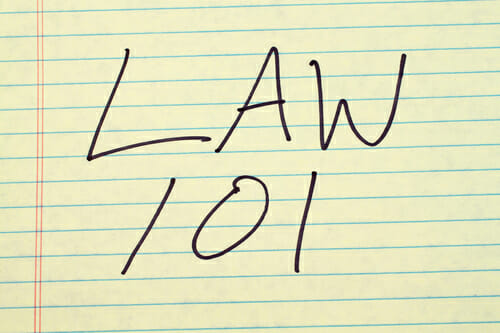 {Read in 4 minutes} As a Trust & Estates attorney, I write Wills for a living. I’ve been writing this blog since September, 2016, and posted the first one in December of that same year. Despite having published a few dozen articles since then, and talking about Wills all the time, it just dawned on me that I’ve never discussed exactly what a Will is in this blog. So, I thought this might be a good time to do so.
{Read in 4 minutes} As a Trust & Estates attorney, I write Wills for a living. I’ve been writing this blog since September, 2016, and posted the first one in December of that same year. Despite having published a few dozen articles since then, and talking about Wills all the time, it just dawned on me that I’ve never discussed exactly what a Will is in this blog. So, I thought this might be a good time to do so.
Simply put, a Will is a document that transfers assets upon a person’s death. It is ambulatory, which means that so long as someone is living, the Will has no legal effect. However, when a person dies, the Surrogate’s Court will admit the person’s Will to probate and grant Letters Testamentary to the Executor.
Here I thought it would be important to discuss two things:
– What assets does a Will govern?
– What are the technical requirements of a Will?
What assets does a Will govern?
A Will controls the disposition of assets that do not otherwise name beneficiaries. For example, certain assets pass automatically to a named beneficiary upon a person’s death.
What type of assets are these?
– Joint accounts;
– Annuities;
– Life insurance policies and retirement accounts that name beneficiaries; and
– Bank accounts or savings accounts which are either P/O/D or T/O/D (payable upon death or transferable upon death) to a named beneficiary.
Despite the existence of a Will, these assets will pass automatically to a named beneficiary. Anything that does not name a beneficiary, or otherwise pass automatically, is subject to disposition under the Will. So if you have these assets (as most people do), it’s important to know what the formal requirements of a Will are. For those of my readers that have Wills, take it out of your drawer and make sure that it meets all of these minimum requirements. If it doesn’t, it’s probably a good time to write a new Will.
Formal requirements of a Will
Written and Signed
New York law requires that Wills be written; not necessarily typewritten — handwritten Wills are perfectly fine. However, our laws in New York do not yet recognize virtual Wills, electronic signatures, text message Wills, video Wills, etc. While a person can use any of these media to supplement a written Will, the court will only admit a written Will to probate.
The Will must also contain the decedent’s original signature at the end of the Will.
Declaration and Witnessing
When signing the Will, the person must have two disinterested (non-beneficiary) witnesses observe or acknowledge the person’s signature on the Will. Usually this will be a member of the attorney’s staff who wrote the Will (although it is not legally required to have an attorney draft your Will).
What customarily happens is at some point the person making the Will states “This is my last Will and Testament” in front of two witnesses. If an attorney is supervising the Will, the attorney will often prompt the person with a question (“Is this your last Will and testament?”) to which the client may answer yes or no.
The Original Will
As discussed in a prior article, when someone dies, the Surrogate’s Court is always interested in seeing the original Will. Why? Because our laws in New York State presume that if a person was last known to be in possession of their own original Will, and it cannot be produced upon their death, there is a rebuttable presumption that they revoked it by tearing it up. Therefore, it is very important that you make it clear who has your original Will, particularly to the person who’s going to serve as the Executor, as it is their job to produce it for the Court.
For more information on this topic, please contact me.

